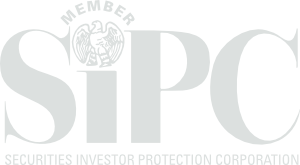Tainting the Market: Why Early & Widespread Market Outreach Can Hurt

Tainting the Market: Why Early & Widespread Market Outreach Can Hurt
By: Craig Steger and Oded Ben-Joseph
As a specialized life science advisory and investment banking group, Outcome Capital is often in the unique position to see companies who have gone to market prematurely and consequently have been unsuccessful in either raising capital or seeking an acquisition partner. What management often does not realize is that the failure of these first-time efforts can leave the market with a tainted impression of their company. Raising capital or seeking an M&A is always difficult. Going to market before the company is fully prepared and aligned with market dynamics introduces additional barriers that can prolong and potentially derail future transactions. Below are a few lessons that Outcome has learned over the years.
Market dynamics determine success or failure.
Prior to entering the market for either raising capital or seeking an acquisition, take an objective look at benchmark transactions in the past 3 years within your segment. Often, management teams are either oblivious to segment dynamics or selectively pick irrelevant transactions that are either too old or are not representative of the current state of the company. It is critical to understand where companies which transacted successfully were in their product development or revenue cycle to support the transaction. As an example, most transactions for life science tools providers occurr after successful market launch where commercial traction has taken place to fully de-risk the company for M&A. It would be wise to hold-off on going to the market until that level of de-risking has been achieved.
If you choose to proceed and enter the market, understand that you run the risk of becoming part of the ‘failed to complete a transaction’ statistics. This problem is subsequently amplified because you have now tainted the market making a future transaction even riskier.
Going to market too soon hurts your probability of success.
When companies approach Outcome Capital for advice pertaining to a strategic exit (M&A) or financing, one of our first questions are always: “What type of outreach have you already done? What market feedback did you receive?”. Understanding these is critical to any successful transaction. If the market is clean, it allows us (both Outcome and the management team) to craft a clear value proposition for the company and to leverage our resources to strategically position the company for each individual buyer, where specific synergies are considered and communicated. In contrast, when companies inform us that they have recently approached all strategic players in their segment and have not been successful, we know the likelihood of closing is far lower.
All major corporations and venture capitalist firms track every opportunity that has been presented to the them and the reason they passed. The second time an opportunity is presented to a strategic player, they will expect significant progress or milestones (e.g. market traction, revenue increase, regulatory clearance, etc.) before they will re-consider. Going back to market before these milestones are completed is futile.
Use a targeted and staggered market outreach to hone your value proposition.
Having a clear and well-articulated value proposition is key to capturing the attention of either a corporate development team or a venture capitalist. A targeted and staggered market outreach can provide valuable insight into how others view the company and/or opportunity. In other words, it provides a much-needed external perspective. This market-driven perspective will allow for a finely tuned value proposition and an understanding as to what the market will demand for a successful transaction to take place. For example, if there are 20 strategic acquirers in your segment, feedback from 3 or 4 can help craft an impactful value proposition that increases success with future outreach to the remaining players.
A broad and indiscriminate outreach that covers everyone in the market does not allow the company to capture those insights and will taint the market with an underdeveloped and misaligned value proposition. A “scorched earth” approach, where everyone has heard the pitch, will rob the company of the opportunity to gain key market feedback that, in turn, could serve to align the value proposal with buyer’s perspective, thereby increasing the probability to closing. This is also true when raising capital. Outcome Capital’s experience suggests that 12 – 18 months need to pass between the first and second approach to a VC. Otherwise, the VC is likely to be negatively predisposed to the opportunity. Staggering your outreach can help hone and refine the approach to find VC’s more aligned with your positioning.
Contrary to the belief of many management teams, financing and M&A transactions are rare events and the organizations you approach have long memories. This is particularly true within the life sciences, a small community where everyone knows who has been successful and who has not. A broad market outreach will decrease the probability to closing and should thus be carefully considered before implementing. When your management team believes it is time to approach the market for any strategic transaction, remember to align to the market dynamics, stagger your approach to get market feedback and then determine how to approach the next group of prospects. This will give you a chance to tune your message, or potentially pivot your company, before the entire market has been tainted by being exposed to an under-developed message.
News
Dx M&A Market Remains Stagnant in H1 2024
Macroeconomic uncertainty, confusion surrounding the diagnostic regulatory landscape, and the continuing post-COVID-19 pandemic hangover have all contributed to a stagnant, quiet period for mergers and acquisitions in the in vitro diagnostics space in the first half of 2024.
Read MoreResources

Outcome Capital Life Sciences Pulse, June 2024
Outcome Capital Life Science Market Pulse June 2024 Click to view our LifeSciences Pulse Newsletter
DownloadContact Us for More Information
Would you like to learn more about working with Outcome Capital or discuss your specific needs?


